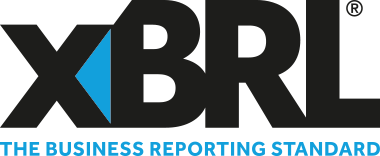October 19 2023
XBRL in Switzerland Implementing the ordinance on climate reporting for large companies with regard to machine readability
On 1st January, 2024, the ordinance on the reporting of climate issues (AS 2022 747) comes into force. It contains a provision in Article 4.2 according to which the reporting must not only be in a format readable by humans, but must also be in a format readable by machines. On a factual level, the analogous obligation for sustainability reporting in accordance with the CSRD (“Corporate Sustainability Reporting Directive”) in the European Union, which is implemented using the European Sustainability Reporting Standards (ESRS), must be delivered in XBRL format. The XBRL reporting requirement under the CSRD will apply to companies from third countries with a branch or subsidiaries in the EU at the latest from 2029 for reporting periods beginning on or after 1st January, 2028 (previously for companies with securities listed in the EU), provided they have sales of EUR 150 million. Unlike in Switzerland, this reporting is subject to an independent audit with limited assurance, which will be extended to reasonable assurance (“comprehensive assurance”) at a later date. (First publication fact sheet XBRL CH, 2023).

Who
In accordance with Article 964a OR (Swiss Code of Obligations), the ordinance applies to all public interest entities that have more than 500 full-time positions and either a balance sheet total of CHF 20 million or sales revenue of CHF‑40‑million. It is estimated that approximately 300 companies in Switzerland are covered by these provisions. A significant proportion of these companies is also expected to fall within the scope of the CSRD and report in accordance with this from 2029. Furthermore, the Federal Council intends to submit a reduction of the employee threshold to 250, as well as the obligation for independent verification, to the consultation on the next version of the ordinance.
When
n accordance with the transitional provisions of Article 5, the machine readability will become effective one year after the ordinance comes into force, i.e. for reporting periods from 1st January, 2025.
What
In accordance with Article 3, the contents of the reporting are governed by the recommendations of the Task Force on Climate-Related Financial Disclosures (TCFD). Since these recommendations do not provide a sufficient level of detail to be considered as a standard, they are fleshed out in the ESRS standards of the European Financial Reporting Advisory Group (EFRAG) for the EU and standards S1 and S2 of the International Sustainability Standards Board (ISSB), which will also assume oversight of the TCFD from 2024. XBRL taxonomies are currently being developed for both standard works and are already available in draft form. According to Article 325ter StGB (Swiss Criminal Code), anyone who fails to comply with the reporting obligation or provides false information shall be liable to a fine of up to CHF 100,000.

How
In accordance with the Explanatory Notes for the Ordinance, the machine-readable version of the climate reporting shall be in an “internationally disseminated electronic format that is readable by both humans (e.g. PDF) and machines (e.g. XBRL)”. The reports shall be made readily available on the corporate website. However, since no XBRL taxonomy created specifically for the TCFD recommendations is available or, to the best of XBRL Switzerland's knowledge, planned, Swiss companies will have to rely on one of the two taxonomies mentioned to fulfil their reporting obligations. The Swiss XBRL jurisdiction XBRL CH offers its members to evaluate the two standards in a standing working group and to adapt and further develop the preferred XBRL taxonomy to the requirements of the ordinance, so that the reporting obligation can be met on time and the dynamics of climate reporting are adequately reflected.
Solve your reporting requirements from a single data source. Rely on our long-standing expertise in automated financial interfaces and continue to create your annual report from a single source. Enhanced with the tagging plus module, we make implementing EU regulation simple and intuitive. Prepare the integration of the non-financial statement into your management report as part of your ESG/sustainability reporting.
Webinars for interested parties
In these one-hour webinars, you will receive in-depth explanations on special areas in corporate reporting. Our experts explain proven solutions for annual and sustainability reports and demonstrate their customer benefits.
Webinar “What can the ESEF solution tagging plus do?”
Register now for free!